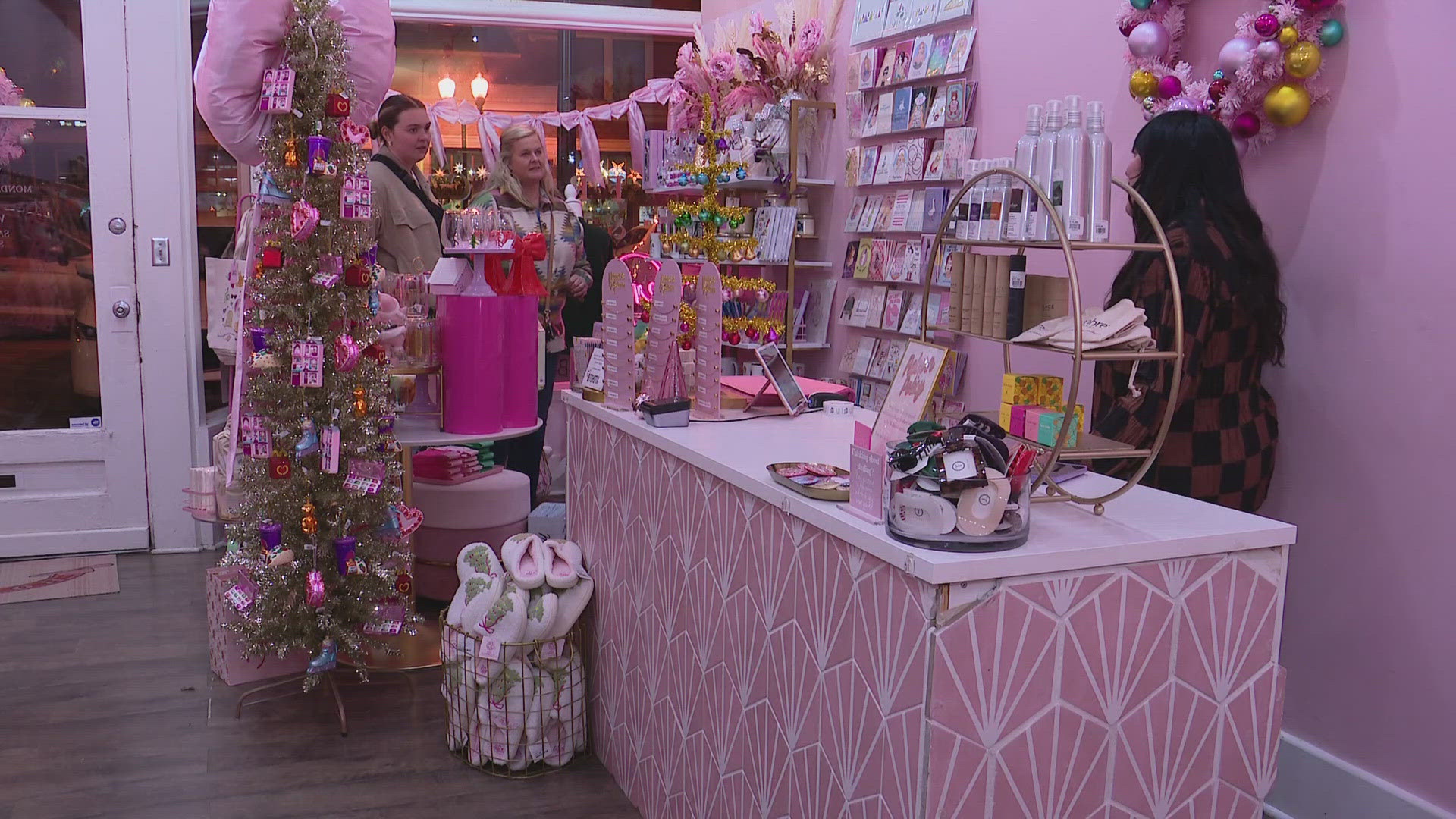JACKSONVILLE, Fla. (WTLV) — As healthcare workers continue their stressful regimens of caring for patients amid the COVID-19 outbreak, many await the arrival of more protective gear to keep them safe in a high-risk environment.
The federal government has called for millions of more protective masks to be shipped to hospitals throughout the country in the coming weeks, but in the meantime, other companies, like JOANN, are trying to help fill the gap with their own supplies.
Starting Saturday morning, JOANN initiated a program in which they are offering pieces of free fabric, elastic and other necessary materials to sew together masks for hospital staff.
WTLV spoke with Amanda Hayes, the Manager of Corporate Communications for JOANN, who said hospitals and other medical facilities have reached out to them asking about help to make homemade masks from their fabric.
"We are working with partners who work in the medical field, so the patterns and the material we are using are accepted with hospitals at this point," Hayes said. "Hospitals are accepting them. There is such a shortage that homemade fabric masks are a crisis resource option."
She said the N95 masks are what healthcare workers need if they are working with someone who has tested positive for COVID-19, but they still need "some kind of coverage" for health care workers and patients on a daily basis.
"We've seen that across the board, really before we even announced this program, we noticed people were doing this on the own, so we noticed elastic was going out the window," she said.
As a result, she said they are working with their vendors to make massive shipments of elastic orders.
The stores are giving out pieces of fabric that are cut into child and adult size pieces. Customers can either take the fabric home to sew, or they are invited to join the classroom in the stores where they offer sewing machines. However, they are only allowing three people in at a time to maintain social distancing.
After the masks are sewn together, they ask the sewers to bring them back to the store so they can be shipped to hospitals.
According to the CDC, in situations where medical-grade face masks are not available to medical personnel, homemade masks, such as bandanas and scarves, may be used as a "last resort" when caring for patients with COVID-19. The CDC goes on to state:
"However, homemade masks are not considered PPE [personal protective equipment], since their capability to protect HCP [healthcare personnel] is unknown. Caution should be exercised when considering this option. Homemade masks should ideally be used in combination with a face shield that covers the entire front (that extends to the chin or below) and sides of the face."
Hayes said they are going to collect the masks over this next week and then their district managers will determine which area hospitals most need them. They plan to continue to repeat that cycle each week "for as long as the shortages exist."



